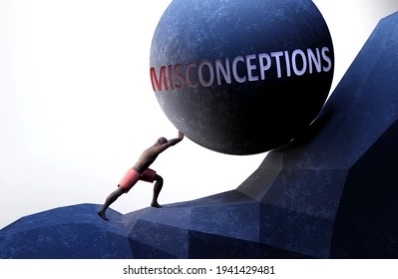
Being Christ-like
…those who seek to engage their opponents without giving up Christlike character are frequently dismissed as following a strategy that no longer works—as though any of these things were ever a “strategy” in the first place. The way of Jesus and the fruit of the Spirit do not work—and never have—by the metrics of the world. Lifelong marital fidelity doesn’t work either—if the goal is to maximize each man’s spreading of genetic material. For that, orgies work far better than one man and one woman giving their lives only to each other.
Russell Moore
Religion
Religion must beware lest it tone down in any degree the unconverted man’s judgment. Conflict and distress, sin and death, the devil and hell, make up the reality of religion. So far from releasing men from guilt and destiny, it brings men under their sway. Religion possesses no solution of the problem of life; rather it makes the problem a wholly insoluble enigma. Religion neither discovers the problem nor solves it: what it does is to disclose the truth that cannot be solved. Religion is neither a thing to be enjoyed nor a thing to be celebrated: it must be borne as a yoke which cannot be removed…Religion is the misfortune which every human being has to endure, though it is, in the majority of cases, a hidden suffering.
Karl Barth
From a purely human perspective, the church is a group of people who espouse and preach ridiculously high moral aspirations: “We love everyone” and “All are welcome here.” Christians say they exist to love everyone in sacrificial ways. Morally, the church is shooting for the moon. Christians claim for themselves impossible standards of conduct. But all those aspirations do is highlight how Christian’s don’t live up to their lofty ideals. Moral ambition makes moral failure more obvious and visible. No one cares all that much if some random bloke is unkind. But when you’re a Christian people notice your unkindness. They mark it. They hold you to your standards. In the words of Paul, sin is being “reckoned” to you. All you’ve done in declaring yourself a Christian is to make the sin in your life publicly visible as sin. And the worse your sin, the more visible your failure before the world.
(unknown)
…knowing something is true and feeling like it is true are two different things because they reside in different parts of our brain.
Judge’s response to Alex Jones’ defense
“Yes, I believe what I said was true,” Jones retorted.
“You believe everything you say is true, but it isn’t. Your beliefs do not make something true,” she said. “That is what we’re doing here. Just because you claim to think something is true does not make it true. It does not protect you. It is not allowed. You’re under oath. That means things need to be true when you say them. Don’t talk.”
When we we do good we find truth.
It is easier to learn truth when we are doing good.
Michael Hanegan
Thoughts from an atheist
I think what you want are people whose convictions scale with good reasons and good evidence and good arguments, and intuitions that are tutored by intellectual honesty and honest collisions with the opinions, so that there’s a certain kind of humility and circumspection and discomfort with illogic, and a desire for consistency.
We’ve got this postmodern effort that’s happening over in “Wokistan” that is making everything seem upside down, to a degree that’s insane, divisive and intolerable. And it really resembles a new religion. That’s what’s so awful about wokeness. It’s essentially intellectual dishonesty, plus a willingness to sacrifice obviously innocent people as scapegoats.
Sam Harris


Despite decades of urban legends and rumors about razor blades in apples or weed in candy, sociology and criminal justice researcher Joel Best has yet to document a single instance of children being seriously injured or killed by goodies they collected while trick or treating.
What kind of society are we living in?
A society where leaders, broadly defined, insist that their political opponents are evil villains will be very different from a society where leaders insist that every human has innate dignity and our differences are subordinate to that. Telling people that the most important unit of society is the “nation” will produce a different kind of society from one in which people are told that the most important unit of society is the individual—or the family.
I shouldn’t have to say this, but if your first response to an 82-year-old man having his skull broken with a hammer is anything other than some kind of expression of outraged condemnation or sympathy for the victim, you’re doing life wrong. Period. Nothing else really enters into it.
Jonah Goldberg
A cursory reading of the New Testament:
…reveals that regenerate Christians are assumed to be in a state of transformation that is measured more in behaviors and attitudes than doctrine…and doctrine without the behaviors and attitudes is suspect at best and damning at worst…
…reveals that God is deeply concerned with the development of His people, not so much the sins of the world…
…declares that world is changed through observing the behaviors and attitudes of the people of God by the power of the Spirit. The “church” is to be so radically different it draws attention to itself…
…defines the primary difference to be exhibited is love for each other and the world…love that destroys tribal, racial, and national lines to create one people of God…
…makes clear that the people of God should be most concerned about the holiness of the church, not the moral failings of the world and when they are not…they become just like that which they claim to despise…
…brings the understanding that Gods power is displayed through sacrificial love and suffering…and any other power is derived from the world and cannot accomplish the works of God…
… reveals that most American Christians have never read the New Testament in even a cursory manner…
The Phoenix Preacher

View from the front porch..
Thinking about the challenge of being a grandparent,
from Richard Rohr :
The final stage of the wisdom journey in mythology is symbolized by the ruling image of the king or queen or what I like to call the grand father or grand mother.
When we can let go of our own need for everything to be as we want it, and our own need to succeed, we can then encourage the independent journey and the success of others. The grand parent is able to relinquish center stage and to stand on the sidelines, and thus be in solidarity with those who need their support. Children can feel secure in the presence of their grandparents because, while their parents are still rushing to find their way through life’s journey, grandpa and grandma have hopefully become spacious. They can contain problems, inconsistencies, inconveniences, and contradictions—after a lifetime of practicing and learning.
Grand parents can trust life because they have seen more of it than younger people have, and they can trust death because they are closer to it. Something has told them along the way that who they are now is never the final stage, and this one isn’t either. We need to be close enough to our own death to see it coming and to recognize that death and life are united in an eternal embrace, and one is not the end of the other. Death is what it is. I am a grand father when I am ready to let go. To the grand mother, death is no longer an enemy, but as Saint Francis called it, a “welcome sister.”
The soul of the grand parent is large enough to embrace the death of the ego and to affirm the life of God in itself and others, despite all imperfections. Its spaciousness accepts all the opposites in life—masculine and feminine, unity and difference, victory and defeat, us and them and so on—because it has accepted the opposition of death itself. Grand parents know that their beliefs have less to do with unarguable conclusions than scary encounters with life and the living God. They have come to realize that spiritual growth is not so much learning as it is unlearning, a radical openness to the truth no matter what the consequences or where it leads. They understand that they do not so much grasp the truth as let go of their egos, which are usually nothing more than obstacles to the truth.
STILL ON THE JOURNEY





